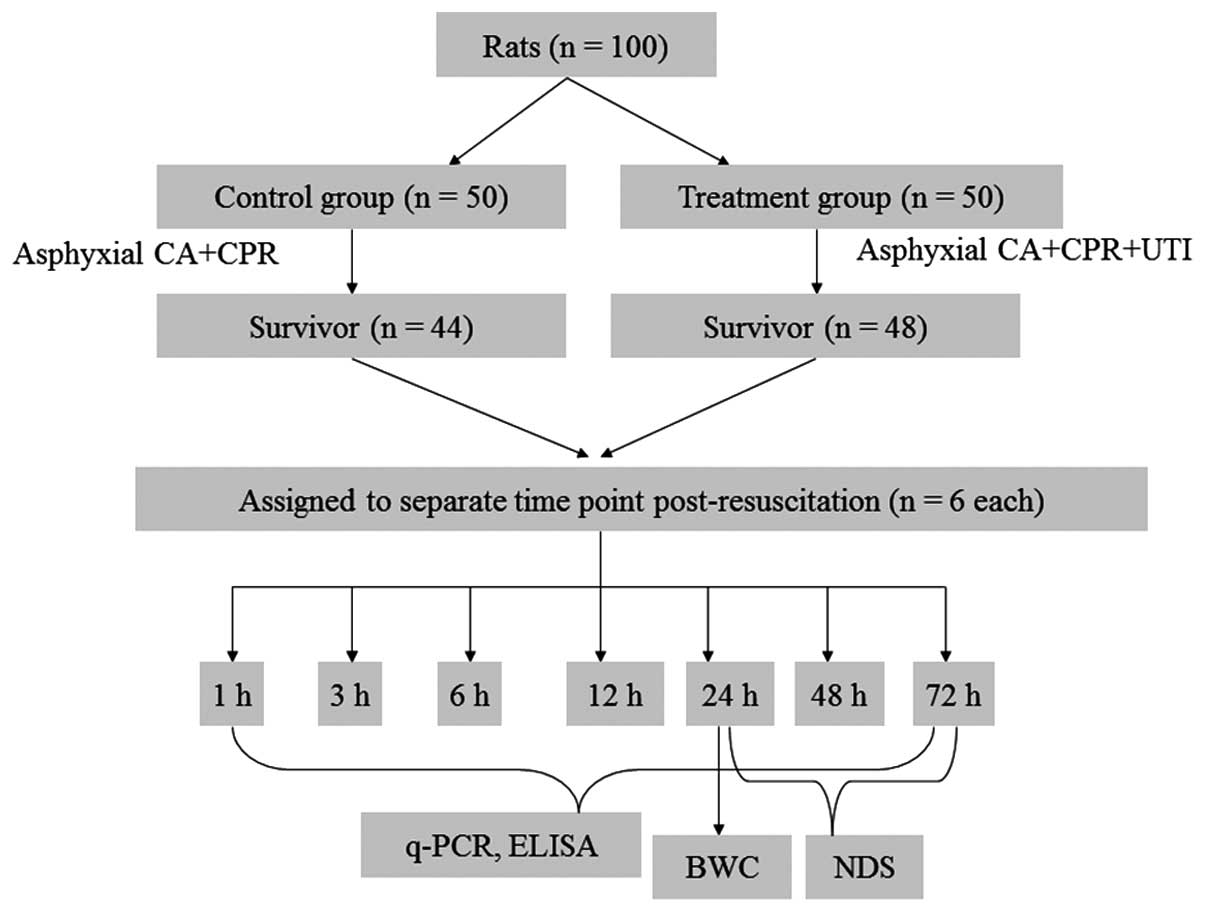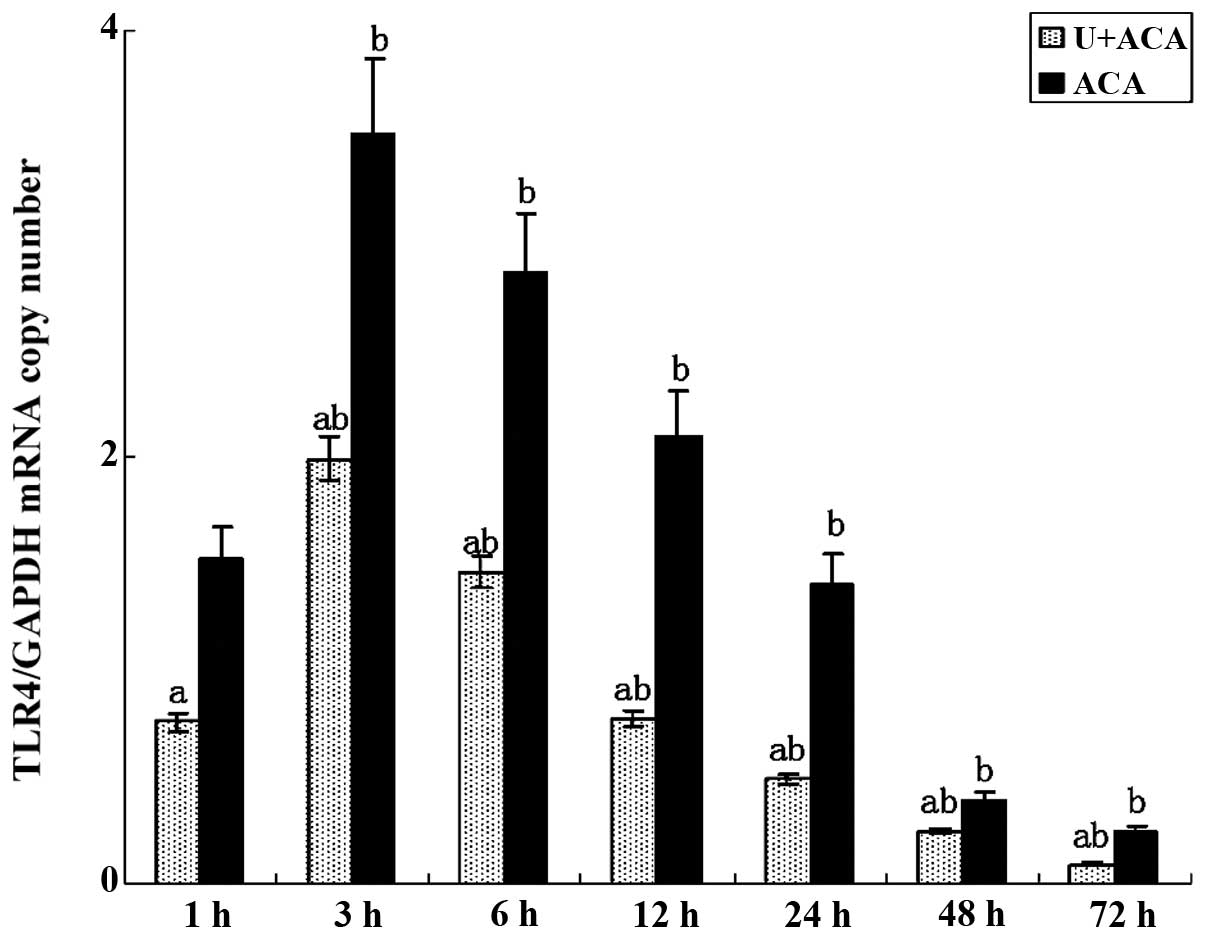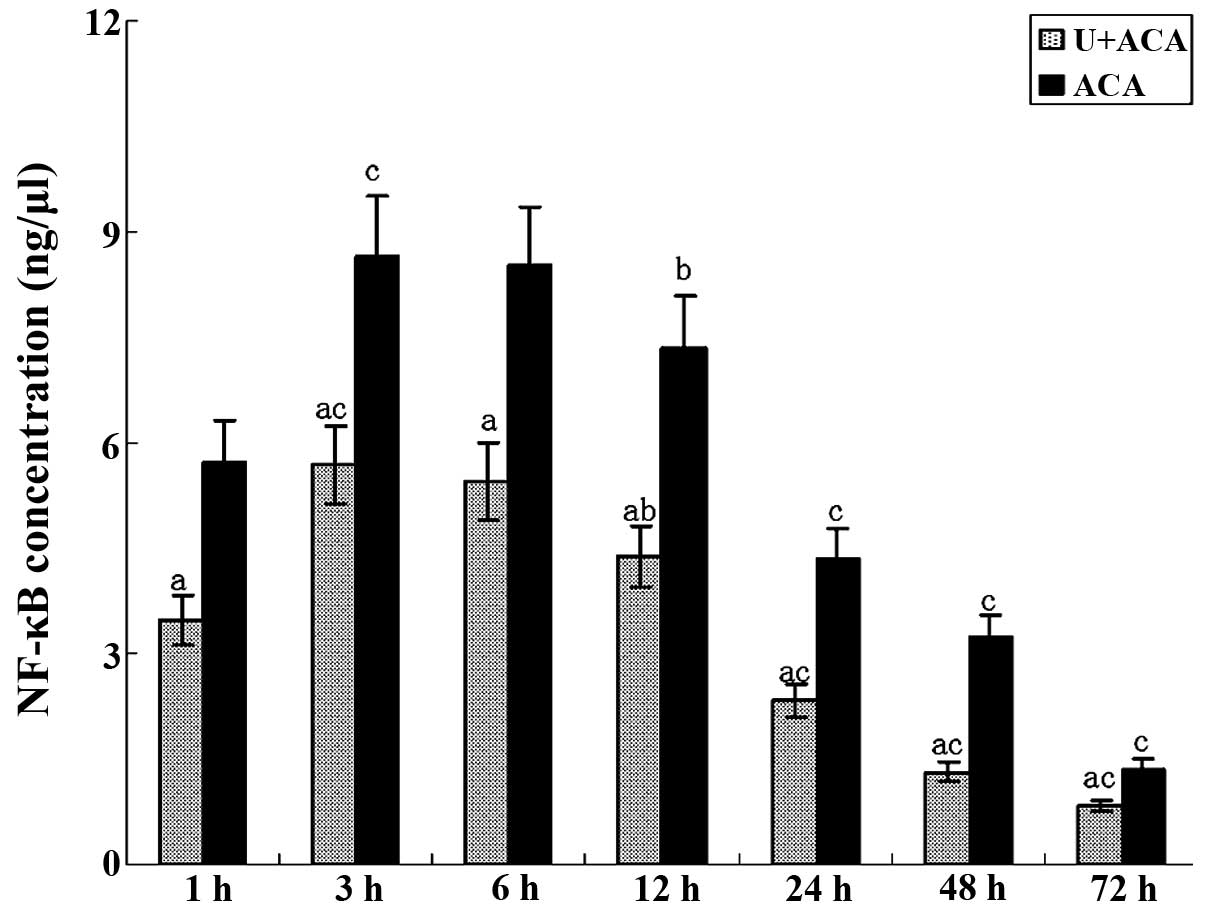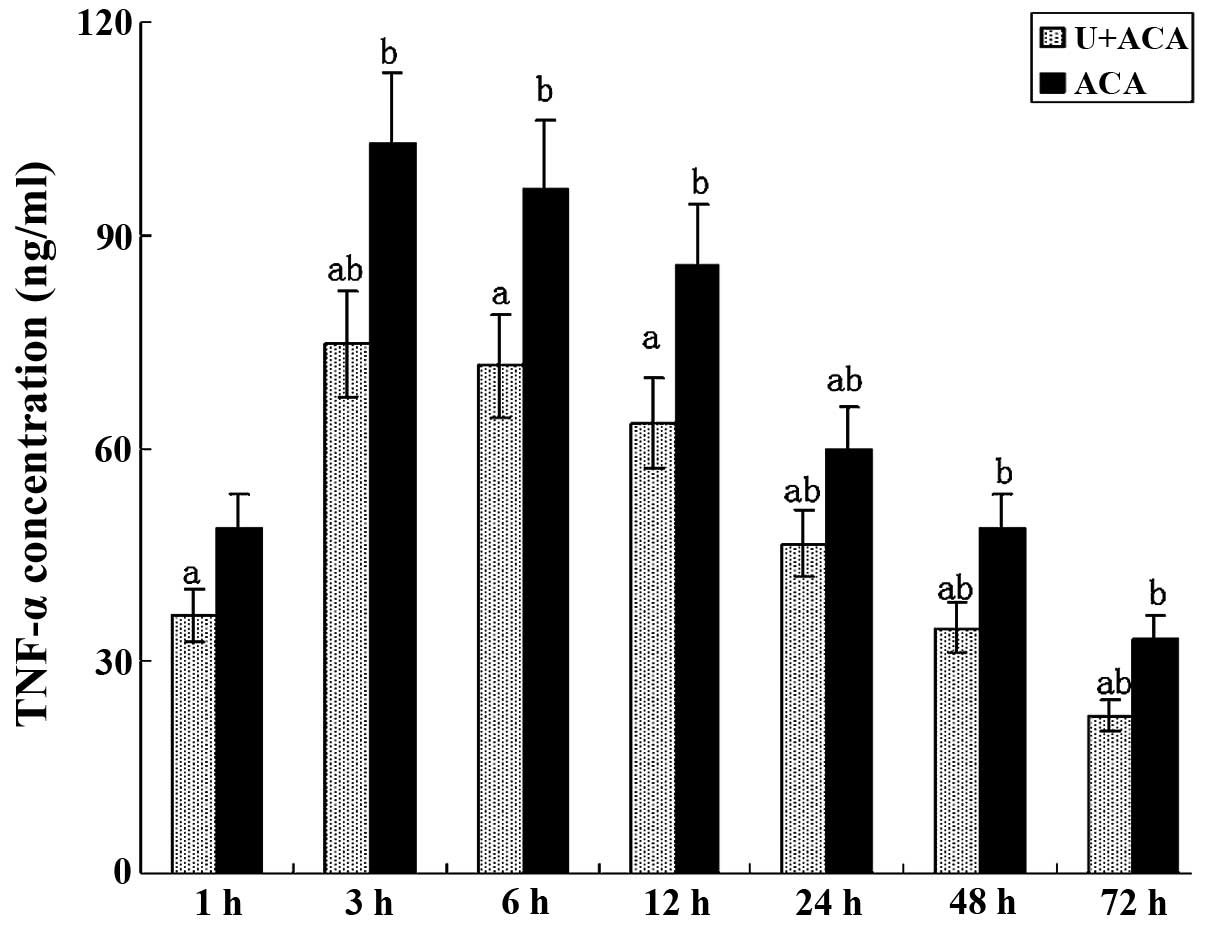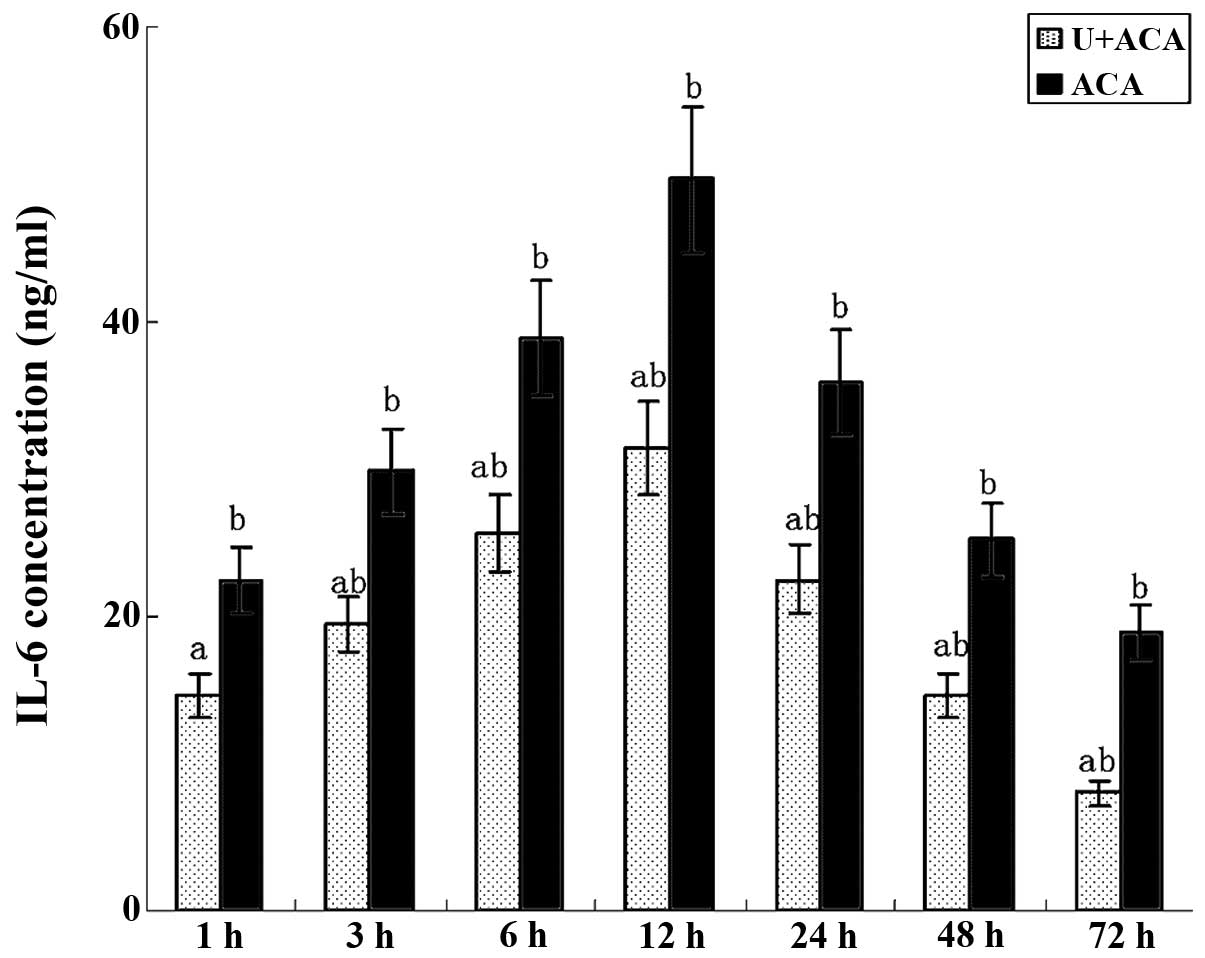|
1
|
Cobb LA, Fahrenbruch CE, Olsufka M and
Copass MK: Changing incidence of out-of-hospital ventricular
fibrillation, 1980–2000. JAMA. 288:3008–3013. 2002.PubMed/NCBI
|
|
2
|
de Vreede-Swagemakers JJ, Gorgels AP,
Dubois-Arbouw WI, et al: Out-of-hospital cardiac arrest in the
1990’s: a population-based study in the Maastricht area on
incidence, characteristics and survival. J Am Coll Cardiol.
30:1500–1505. 1997.
|
|
3
|
Peters R and Boyde M: Improving survival
after in-hospital cardiac arrest: the Australian experience. Am J
Crit Care. 16:240–247. 2007.PubMed/NCBI
|
|
4
|
Adrie C, Adib-Conquy M, Laurent I, et al:
Successful cardiopulmonary resuscitation after cardiac arrest as a
‘sepsis-like’ syndrome. Circulation. 106:562–568. 2002.
|
|
5
|
Neumar RW, Nolan JP, Adrie C, et al:
Post-cardiac arrest syndrome: epidemiology, pathophysiology,
treatment, and prognostication. A consensus statement from the
International Liaison Committee on Resuscitation (American Heart
Association, Australian and New Zealand Council on Resuscitation,
European Resuscitation Council, Heart and Stroke Foundation of
Canada, InterAmerican Heart Foundation, Resuscitation Council of
Asia, and the Resuscitation Council of Southern Africa); the
American Heart Association Emergency Cardiovascular Care Committee;
the Council on Cardiovascular Surgery and Anesthesia; the Council
on Cardiopulmonary, Perioperative, and Critical Care; the Council
on Clinical Cardiology; and the Stroke Council. Circulation.
118:2452–2483. 2008.
|
|
6
|
Lu YC, Yeh WC and Ohashi PS: LPS/TLR4
signal transduction pathway. Cytokine. 42:145–151. 2008. View Article : Google Scholar
|
|
7
|
Li YW, Jin HL, Wang BG, et al: Toll-like
receptor 4 signal pathway may be involved in cerebral ischemic
tolerance induced by hypoxic preconditioning: experiment with rats.
Zhonghua Yi Xue Za Zhi. 87:2458–2462. 2007.(In Chinese).
|
|
8
|
Caso JR, Pradillo JM, Hurtado O, et al:
Toll-like receptor 4 is involved in brain damage and inflammation
after experimental stroke. Circulation. 115:1599–1608. 2007.
View Article : Google Scholar : PubMed/NCBI
|
|
9
|
Xu L, Ren B, Li M, et al: Ulinastatin
suppresses systemic inflammatory response following lung
ischemia-reperfusion injury in rats. Transplant Proc. 40:1310–1311.
2008. View Article : Google Scholar : PubMed/NCBI
|
|
10
|
Bae HB, Jeong CW, Li M, et al: Effects of
urinary trypsin inhibitor on lipopolysaccharide-induced acute lung
injury in rabbits. Inflammation. 35:176–182. 2012. View Article : Google Scholar : PubMed/NCBI
|
|
11
|
Ueki M, Taie S, Chujo K, et al: Urinary
trypsin inhibitor reduces inflammatory response in kidney induced
by lipopolysaccharide. J Biosci Bioeng. 104:315–320. 2007.
View Article : Google Scholar : PubMed/NCBI
|
|
12
|
Xiao F, Pardue S, Arnold T, et al: Effect
of ifenprodil, a polyamine site NMDA receptor antagonist, on brain
edema formation following asphyxial cardiac arrest in rats.
Resuscitation. 61:209–219. 2004. View Article : Google Scholar : PubMed/NCBI
|
|
13
|
Geocadin RG, Malhotra AD, Tong S, et al:
Effect of acute hypoxic preconditioning on qEEG and functional
recovery after cardiac arrest in rats. Brain Res. 1064:146–154.
2005. View Article : Google Scholar : PubMed/NCBI
|
|
14
|
Geocadin RG, Ghodadra R, Kimura T, et al:
A novel quantitative EEG injury measure of global cerebral
ischemia. Clin Neurophysiol. 111:1779–1787. 2000. View Article : Google Scholar : PubMed/NCBI
|
|
15
|
McCaul CL, McNamara PJ, Engelberts D, et
al: Epinephrine increases mortality after brief asphyxial cardiac
arrest in an in vivo rat model. Anesth Analg. 102:542–548. 2006.
View Article : Google Scholar : PubMed/NCBI
|
|
16
|
Fink EL, Alexander H, Marco CD, et al:
Experimental model of pediatric asphyxial cardiopulmonary arrest in
rats. Pediatr Crit Care Med. 5:139–144. 2004. View Article : Google Scholar : PubMed/NCBI
|
|
17
|
Ren B, Wu H, Zhu J, et al: Ulinastatin
attenuates lung ischemia-reperfusion injury in rats by inhibiting
tumor necrosis factor alpha. Transplant Proc. 38:2777–2779. 2006.
View Article : Google Scholar : PubMed/NCBI
|
|
18
|
Nakanishi K, Takeda S, Sakamoto A and
Kitamura A: Effects of ulinastatin treatment on the cardiopulmonary
bypass-induced hemodynamic instability and pulmonary dysfunction.
Crit Care Med. 34:1351–1357. 2006. View Article : Google Scholar : PubMed/NCBI
|
|
19
|
Koga Y, Fujita M, Tsuruta R, et al:
Urinary trypsin inhibitor suppresses excessive superoxide anion
radical generation in blood, oxidative stress, early inflammation,
and endothelial injury in forebrain ischemia/reperfusion rats.
Neurol Res. 32:925–932. 2010. View Article : Google Scholar
|
|
20
|
Ito K, Mizutani A, Kira S, et al: Effect
of Ulinastatin, a human urinary trypsin inhibitor, on the oleic
acid-induced acute lung injury in rats via the inhibition of
activated leukocytes. Injury. 36:387–394. 2005. View Article : Google Scholar : PubMed/NCBI
|
|
21
|
Inoue K and Takano H: Urinary trypsin
inhibitor as a therapeutic option for endotoxin-related
inflammatory disorders. Expert Opin Investig Drugs. 19:513–520.
2010. View Article : Google Scholar : PubMed/NCBI
|
|
22
|
Tanaka R, Fujita M, Tsuruta R, et al:
Urinary trypsin inhibitor suppresses excessive generation of
superoxide anion radical, systemic inflammation, oxidative stress,
and endothelial injury in endotoxemic rats. Inflamm Res.
59:597–606. 2010. View Article : Google Scholar
|
|
23
|
Wang X, Xue Q, Yan F, et al: Ulinastatin
as a neuroprotective and anti-inflammatory agent in infant piglets
model undergoing surgery on hypothermic low-flow cardiopulmonary
bypass. Paediatr Anaesth. 23:209–216. 2013. View Article : Google Scholar : PubMed/NCBI
|
|
24
|
Xu CE, Zhang MY, Zou CW and Gou L:
Evaluation of the pharmacological function of ulinastatin in
experimental animals. Molecules. 17:9070–9080. 2012. View Article : Google Scholar : PubMed/NCBI
|
|
25
|
Karikó K, Weissman D and Welsh FA:
Inhibition of Toll-like receptor and cytokine signaling - a
unifying theme in ischemic tolerance. J Cereb Blood Flow Metab.
24:1288–1304. 2004.PubMed/NCBI
|
|
26
|
Aderem A and Ulevitch RJ: Toll-like
receptors in the induction of the innate immune response. Nature.
406:782–787. 2000. View
Article : Google Scholar : PubMed/NCBI
|
|
27
|
Raeburn CD, Sheppard F, Barsness KA, et
al: Cytokines for surgeons. Am J Surg. 183:268–273. 2002.
View Article : Google Scholar : PubMed/NCBI
|
|
28
|
Song M and Kellum JA: Interleukin-6. Crit
Care Med. 33(12 Suppl): S463–S465. 2005. View Article : Google Scholar : PubMed/NCBI
|















